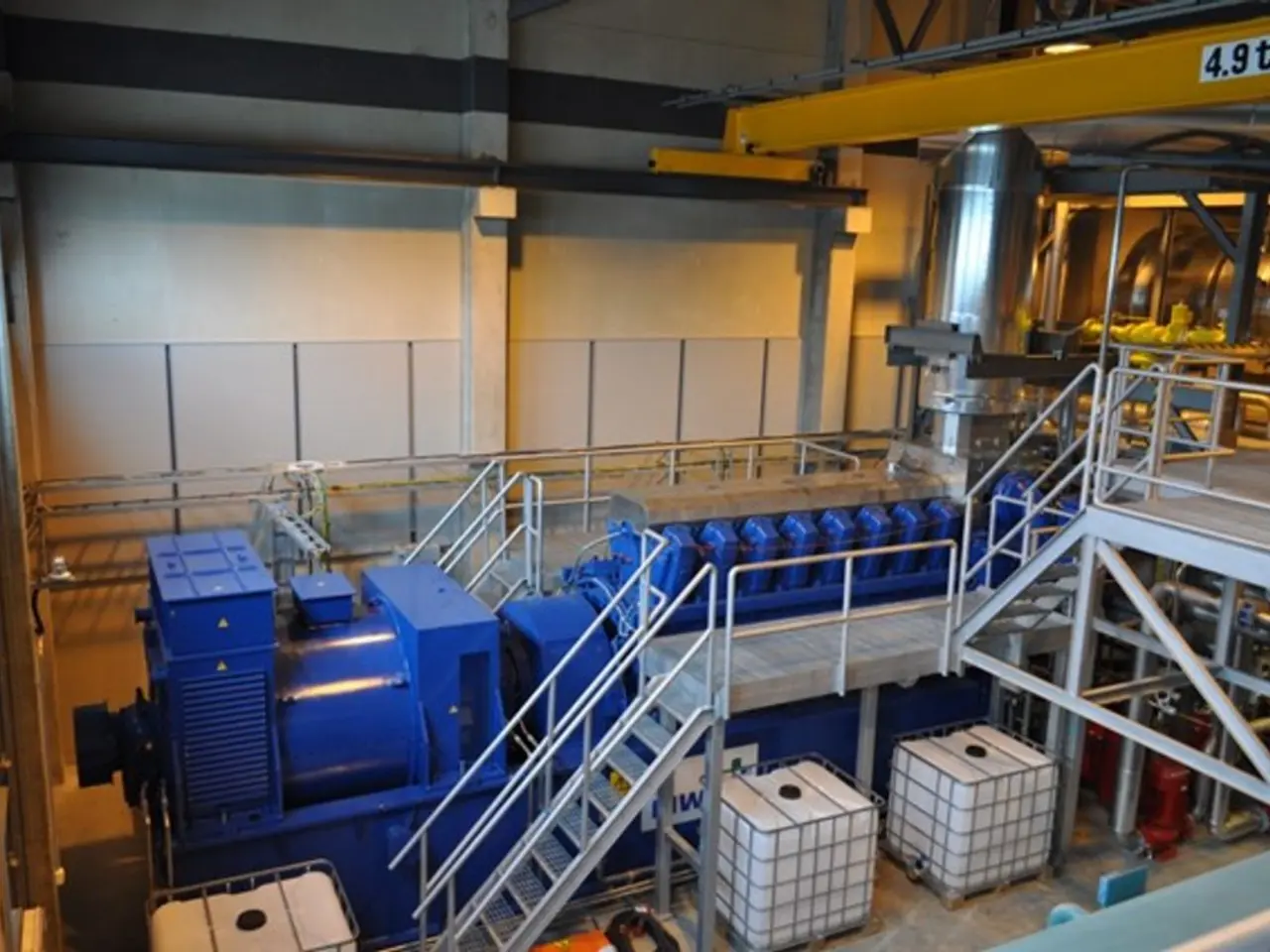Future of Logistics Exhibition 2025: Fraunhofer IML Demonstrates Innovations in AI, Durability, and Sustainability
At the digitization and sustainability event, Transport Logistic 2025, taking place in Munich from June 2 to 5, the Fraunhofer Institute for Material Flow and Logistics (IML) is presenting a range of technological innovations focused on Artificial Intelligence (AI), resilience, and Corporate Sustainability Reporting Directive (CSRD) reporting obligations.
In the realm of Artificial Intelligence, Fraunhofer IML is highlighting AI applications in logistics, such as the intelligent platform "Goods2Load", which enhances load planning efficiency in B2B operations by optimizing resource use and minimizing empty runs. The institute's research halls and labs are equipped to develop advanced Internet of Things (IoT) and embedded systems for smart logistics solutions, underpinning AI-driven innovations.
To improve operational resilience, Fraunhofer IML is collaborating with partners to present innovations that exemplify automation, as demonstrated by the presence of the robot dog “Spot” at the Munich Airport booth. This automation technology symbolizes advances in automation and resilience under dynamic conditions.
In terms of CSRD reporting obligations, while specific tools were not explicitly described, Fraunhofer IML’s focus on sustainability and logistics efficiency strongly suggests they are working on digital solutions that facilitate compliance with these evolving regulatory requirements, likely through data-driven reporting and lifecycle assessment platforms integrated with AI technology.
The institute's booth at Hall B1, Stand 501/602 showcases these solutions and more. Notable mentions include the AI platform "Omnistics", which offers AI-supported logistics processes without costly IT infrastructure, specifically for small and medium-sized enterprises. Additionally, the "SySta" system is designed for optimized loading of air and sea freight containers.
Further developments at Fraunhofer IML, under the "SKALA" project, present three additional innovations: "GreenComplAI" for digital product passports, "SiMBA" for AI-supported pricing and automated invoicing, and "InstaSCAN" for digitizing unstructured, paper-based transport documents.
Prof. Uwe Clausen, Director of Fraunhofer IML, underscores the importance of AI in streamlining processes and securing operations for the future, especially for companies dealing with complex supply chains and tight margins.
Moreover, the "ONE Record" is expected to enable more efficient data integration in air freight from 2026, and the institute is involved in numerous expert forums at the trade fair, including a lecture by Dr. Harald Sieke on the introduction of the IATA data standard "ONE Record".
Fraunhofer IML is also involved in solutions for sustainability in hydrogen supply chains and logistics processes, although specific details about the product passport for hydrogen supply chains were not provided in the information available.
Cogita is digitizing freight forwarding processes at Transport Logistic 2025, further underscoring the event's focus on digitalization and innovation in the logistics sector. The REff Tool, an application for evaluating greenhouse gas emissions from handling, storage, and logistics locations worldwide, is also part of Fraunhofer IML's portfolio, contributing to the institute's commitment to sustainability.
- The Fraunhofer Institute for Material Flow and Logistics (IML) is spotlighting AI applications in logistics, such as the platform "Goods2Load", which optimizes resource use and minimizes empty runs.
- In the manufacturing industry, Fraunhofer IML is developing advanced Internet of Things (IoT) and embedded systems for smart logistics solutions underpinned by AI technology.
- The institute is also collaborating with partners to demonstrate automation technology, as shown by the robot dog “Spot” at the Munich Airport booth.
- In the realm of personal-finance and business, Fraunhofer IML is likely working on digital solutions for Corporate Sustainability Reporting Directive (CSRD) compliance, possibly through data-driven reporting and lifecycle assessment platforms integrated with AI technology.
- visitor's to Hall B1, Stand 501/602 at the event can find the institute's booth, showcasing solutions like the AI platform "Omnistics", designed for small and medium-sized enterprises, and the "SySta" system for optimized loading of air and sea freight containers.
- Additionally, Fraunhofer IML's "SKALA" project presents three more innovations: "GreenComplAI" for digital product passports, "SiMBA" for AI-supported pricing and automated invoicing, and "InstaSCAN" for digitizing unstructured, paper-based transport documents.
- Apart from AI, the institute is also involved in sustainability projects related to hydrogen supply chains and logistics processes, particularly in creating a product passport for hydrogen supply chains.




